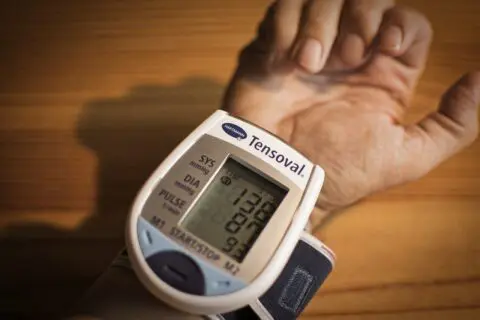Blood pressure is the force of blood against the walls of the arteries. The top number, or systole, measures the force when the heart beats, and the bottom number, or diastole, measures the force between beats. A healthy blood pressure should not exceed 120/80.
What can happen if hypertension, or high blood pressure, is not treated? Although hypertension is not painful, it is known as the silent killer due to the severe health issues it can cause if left uncontrolled. The three most at-risk organs are the brain, heart, and kidneys.
Risks to the Brain
Hypertension can lead to cerebrovascular accidents (CVAs) or strokes, which can be fatal. It can also cause aneurysms weak outpouchings of the arteries in the brain that can rupture and cause bleeding.
Risks to the Heart
Hypertension forces the heart to work harder to pump blood, which can lead to heart failure. When the left ventricle struggles to pump blood, blood can back up into the lungs, leading to congestive heart failure. This condition makes breathing difficult and can be fatal if not treated promptly.
Risks to the Kidneys
High blood pressure can damage the blood vessels in the kidneys, leading to chronic kidney disease and, eventually, end-stage kidney failure.
Medications for Treating High Blood Pressure
There are several types of medications available to manage hypertension:
Diuretics
Diuretics help the kidneys eliminate water, reducing blood volume:
- Loop diuretics: Lasix (furosemide), Edecrin (ethacrynic acid), Bumex (bumetanide)
- Potassium-sparing diuretics: Midamor (amiloride), Inspra (eplerenone), Dyrenium (triamterene), Aldactone (spironolactone)
- Thiazide diuretics: Diuril (thiazide), Microzide (hydrochlorothiazide), Hygroton (chlorthalidone), Natrilix (indapamide), Zaroxolyn (metolazone)
Beta Blockers
Beta-blockers reduce heart rate and force by blocking adrenaline:
- Tenormin (atenolol), Cardicor (bisoprolol), Lopressor (metoprolol), Inderal (propranolol)
ACE Inhibitors
ACE inhibitors dilate blood vessels by inhibiting angiotensin-converting enzymes:
- Lotensin (benazepril), Capoten (captopril), Vasotec (enalapril), Monopril (fosinopril), Zestril (lisinopril), Univasc (moexipril), Coversyl (perindopril), Accupril (quinapril)
Angiotensin II Receptor Blockers
These drugs dilate blood vessels:
- Edarbi (azilsartan), Atacand (candesartan), Teveten (eprosartan), Avapro (Irbesartan), Cozaar (losartan), Benicar (olmesartan), Micardis (telmisartan), Diovan (Valsartan)
Calcium Channel Blockers
These prevent calcium from entering heart and artery cells, causing relaxation:
- Norvasc (amlodipine), Cardizem (diltiazem), Plendil (felodipine), Dynacirc (isradipine), Cardene (nicardipine), Procardia (nifedipine), Sular (nisoldipine), Calan (Verapamil)
Central Agonists
These drugs act on the brain to reduce signals to the heart and blood vessels:
- Tenex (guanfacine), Aldomet (methyldopa), Catapres (clonidine), Wytensin (guanabenz)
Peripheral Adrenergic Inhibitors
These block brain signals that cause blood vessel constriction:
- Hylorel (guanadrel), Ismelin (guanethidine monosulfate), Serpasil (reserpine)
Get Treatment for Hypertension at QuickMD
Did you know that QuickMD can treat high blood pressure at your convenience and refill your blood pressure medications via phone or video? Don’t wait—get the care you need today.




